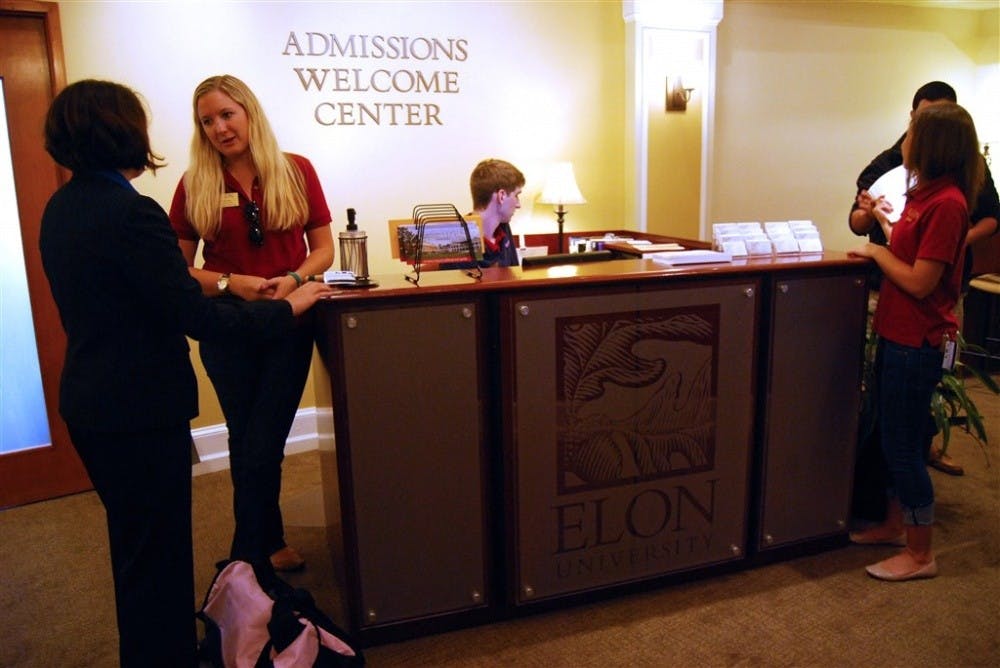The Elon University admissions application is getting an update, changes ranging from different essay questions to new scholarships and gap semester programs.
"We are deliberate as ever in trying to get to know our applicants," said Greg Zaiser, dean of admissions. "The questions are reflective of the things we value as an institution."
Even just changing the essay questions can determine who belongs in Elon's student body. This year's questions are geared toward potential global citizens and ask about what project a student would work on if they had the financial resources for it, meeting challenging experiences and learning from world travels.
"I plan on answering the question about what organization I would create with $5,000, since that is exactly what I plan on doing with my college education," said Shelby Thomas, a high school senior from Raleigh. "Either that, or be a part of or create an organization that works to provide clean water to every person in the world."
There are two brand new additions to the application this year: the Elon Engagement Scholarship and the Gap Semester Program.
"The Elon Engagement Scholarship is exciting," Zaiser said. "It will largely be based on the application essay. One hundred fifty students will receive $3,500 scholarships ayearanda $2,000 Elon Experiences grant."
This totals $16,000 in scholarships during four years.
"The scholarship is a result of redirecting funds from the smaller Presidential Scholarships," said Zaiser. "We still offer students in the class with the strongest academic profiles a Presidential Scholarship of $4,500. The idea here is to offer scholarships to students at different academic ranges and not only offer funds to the top of the class based on GPA and SAT/ACT."
The Gap Semester Program begins next fall. Students will return to Elon in time for Winter Term and spring semester. Currently, 15 freshmen will be able to participate in the program. Students will be selected based on a formal review of their applications, according to Meredith Smith, associate director of Admissions for Campus Visits. Applicants must write an essay specifically for the program in addition to the required essay.
What do these new additions replace on the application? Not the SAT scores, according to Zaiser, who said those are here to stay.
"Having a test score is helpful criterion with a large applicant pool of strong high school students," he said. "The GPA and standardized test combined are generally about 75 percent of the admissions review process."
Some applicants said they would support the change.
"I would like the SAT scores to be optional," Thomas said. "That way, I could not include them if they were inferior to the majority of other applicants, and allow my grades to stand on their own."
The Office of Admissions isn't planning on replacing the current application with the Common Application either. The Common App is a basic application that students can use to apply to more than 400 colleges.
"While many private schools have gone to using the Common App, we have not," Zaiser said. "Our applicant pool has grown exponentially over the last decade and we are aware that the easier it is to apply to a school, the more challenging it becomes to determine who is serious about attending and who is doing so just because they can check a box."
High school senior Becca Evans said she understands.
"I love the Common App," she said. "It'd be nice if Elon were on it, but the fact that it's not sort of sets it apart. It makes Elon look like something to aspire to."
Despite Elon's application process, more than enough students are applying to fill the freshman class. From 2010 to 2011, the class size goal grew from 1,350 to 1,400.
"That may not sound like a lot, but it certainly is," Zaiser said. "Particularly in these economic times"


